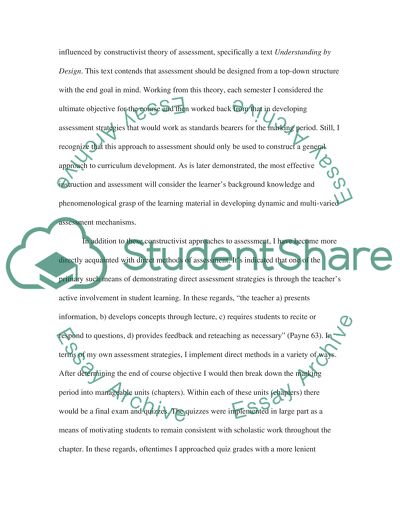Cite this document
(The Philosophy of Classroom Assessment Essay Example | Topics and Well Written Essays - 1500 words, n.d.)
The Philosophy of Classroom Assessment Essay Example | Topics and Well Written Essays - 1500 words. https://studentshare.org/education/1753376-philosophy-of-assessment-part-two
The Philosophy of Classroom Assessment Essay Example | Topics and Well Written Essays - 1500 words. https://studentshare.org/education/1753376-philosophy-of-assessment-part-two
(The Philosophy of Classroom Assessment Essay Example | Topics and Well Written Essays - 1500 Words)
The Philosophy of Classroom Assessment Essay Example | Topics and Well Written Essays - 1500 Words. https://studentshare.org/education/1753376-philosophy-of-assessment-part-two.
The Philosophy of Classroom Assessment Essay Example | Topics and Well Written Essays - 1500 Words. https://studentshare.org/education/1753376-philosophy-of-assessment-part-two.
“The Philosophy of Classroom Assessment Essay Example | Topics and Well Written Essays - 1500 Words”. https://studentshare.org/education/1753376-philosophy-of-assessment-part-two.


